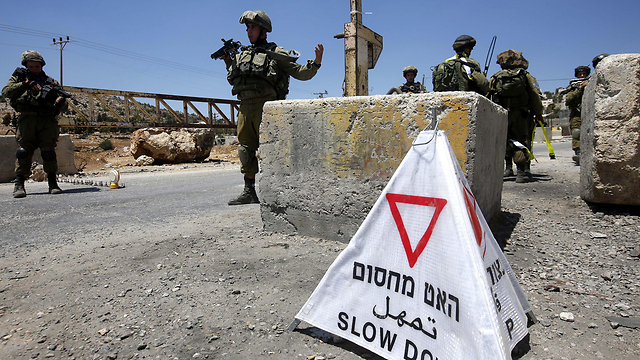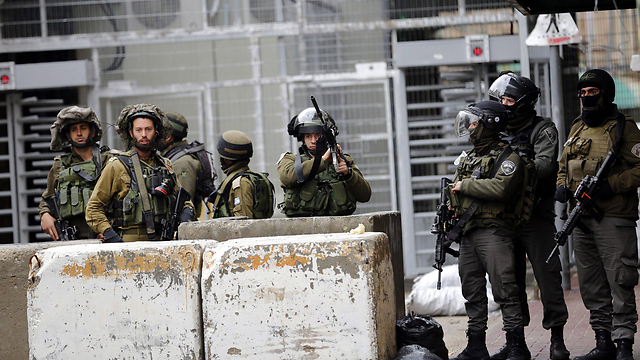

Study: 'The occupation costs Israel tens of billions of shekels'
Adva Center reports that decades of exerting military control over the territories has cost Israel NIS 55 billion between 1988 and 2015; '"Maintaining the occupation" is a very expensive business that harms economic growth and the raising of the overall standard of living,' says researcher behind report.
The study was headed by Dr. Shlomo Swirski and Attorney Noga Dagan Buzaglo, who examined the cost of the conflict's occupying element over close to three decades. The researchers found that Israel's many military operations cost the state considerable money and hindered its socio-economic growth; with large sums of money going to the defense establishment, the necessary funding does reach social services, while at the same hindering Israel's growth and causing widespread damage to its gross domestic product (GDP).
The study cited the terrorist attacks and conflict that were part of the Second Intifada as a period of unrest that significantly hurt incoming tourism, whose numbers were drastically cut to less than one million, after it had previously reached more than 2.5 million. Only in 2010, seven years after the bulk of the Intifada had ended, did the number of tourists visiting Israel return to normal.
Further comparison found that during the mid-nineties, the GDP per capita in Israel was similar to the OECD average, but that the Intifada slowed down its growth rate, while the rest of the countries in the OECD began, on average, to surpass Israel.
According to the study, during the late nineties, Israel's budget stood at 46 percent – 49 percent of the GDP, compared with 35 percent of the GDP today, so that the state's monetary investment in social issues has reached a very low mark.
The Adva Center study notes that additions to the defense budget between 1988 and 2015, added on top of its existing budget due to security-related projects and needs, amounted to NIS 55.6 billion. As such, "a considerable part of the Ministry of Public Security's resources were directed to the maintenance of the occupation."
The study linked the increase in Israel's defense budget to specific slashes in the social support offered to its citizens. These include lowering the amount of unemployment benefits by NIS 700 between the years 2001 to 2004. The number of people to receive unemployment benefits was also reportedly affected, as it dropped from 227,000 in 2002 to 156,000 in 2008.
"Many Israelis regard the occupation and Palestinian resistance as a security or political issue separate from the socio-economic issue," said Dr. Swirski. "But it's a mistake: 'maintaining the occupation' is a very expensive business that harms economic growth, the state's ability to invest in the periphery and the raising of the overall standard of living."

















